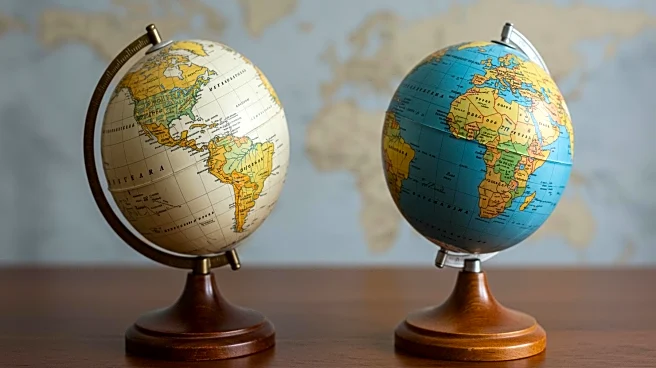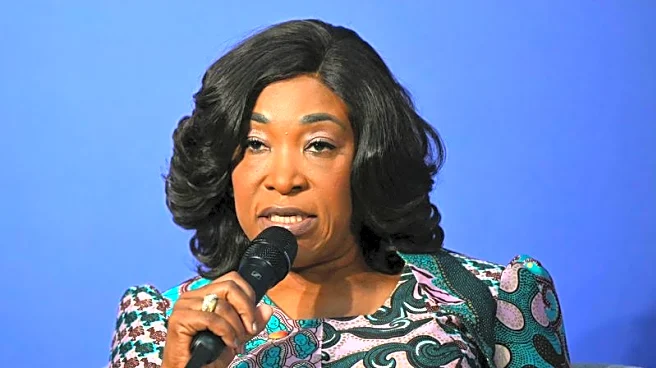What is the story about?
What's Happening?
Iran's Foreign Minister Abbas Araqchi announced that the country cannot completely halt cooperation with the International Atomic Energy Agency (IAEA), despite a new law requiring high-level security approval for future inspections. This statement comes after Iran's parliament passed legislation suspending cooperation with the IAEA, following accusations that the agency's report facilitated attacks by Israel and the U.S. on Iran's nuclear facilities during a 12-day war in June. IAEA inspectors have been unable to access these installations since the conflict, although IAEA chief Rafael Grossi emphasized the necessity of inspections. Araqchi's remarks, reported by state media, indicate that Iran will continue discussions with the IAEA, with another round of negotiations expected soon.
Why It's Important?
The ongoing cooperation between Iran and the IAEA is crucial for international nuclear oversight and non-proliferation efforts. The inability of IAEA inspectors to access Iran's nuclear sites raises concerns about transparency and compliance with global nuclear agreements. This situation impacts geopolitical stability, particularly in the Middle East, where tensions between Iran, Israel, and the U.S. are high. The new law requiring security approval for inspections could complicate diplomatic relations and negotiations aimed at ensuring Iran's adherence to its non-proliferation obligations. Stakeholders, including international governments and nuclear watchdogs, are closely monitoring these developments.
What's Next?
Iran's continued dialogue with the IAEA suggests potential for resolving inspection access issues, although the requirement for security approval may pose challenges. The international community, particularly the U.S. and European nations, may increase diplomatic pressure on Iran to comply with IAEA protocols. Future negotiations could focus on establishing a framework that balances Iran's security concerns with the need for transparency in its nuclear activities. The outcome of these discussions will likely influence regional security dynamics and international nuclear policy.
















